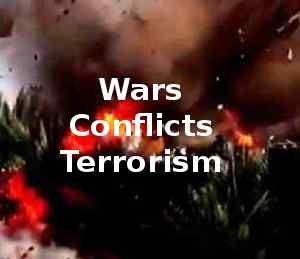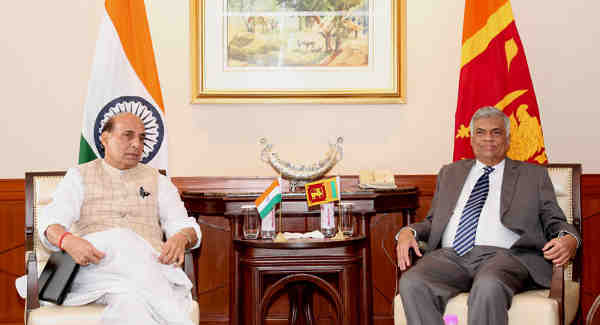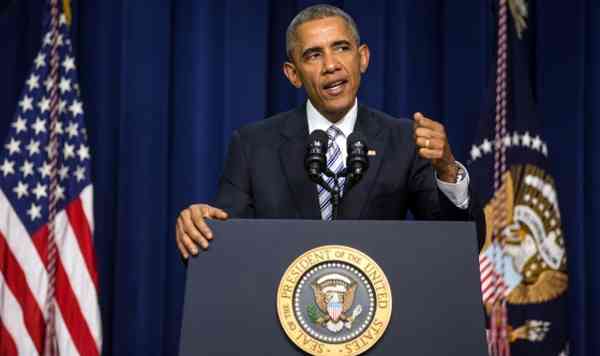10,000 Terrorist Attacks in a Year: Report

The number of lives lost to terrorist attacks increased by 61% in a single year, according to the second edition of the Global Terrorism Index (GTI), rising from 11,133 in 2012 to 17,958 in 2013.
The index also recorded a 44% increase in the number of terrorist incidents, rising from 6,825 in 2012 to 9,814 in 2013. Explosives accounted for the majority of these attacks, while suicide bombings accounted for less than 5%.
The report released Tuesday, Nov. 18, also reveals that there were almost 10,000 terrorist attacks recorded in 2013 representing a 44% increase on 2012, resulting in nearly 18,000 deaths representing a 61% increase from the previous year.
First launched by the Institute for Economics & Peace (IEP) in 2012, the GTI ranks countries by the impact of terrorist activities as well as analysing the economic and social dimensions associated with terrorism.
[ Also Read: Al-Qaeda Ready to Fight for the Liberation of Palestine ]
The index scores 162 countries, covering 99.6% of the world’s population, and examines trends from 2000 to 2013. The indicators used include the number of terrorist incidents, fatalities, injuries and property damage.
Over 80% of the deaths from terrorist attacks in 2013 were in just five countries: Iraq, Afghanistan, Pakistan, Nigeria and Syria. Iraq continues to be the country most impacted by terrorism with 2,492 attacks killing 6,362 people, which represents a 164% increase from 2012. ISIL was responsible for most of the deaths in the country.
[ Islamic State to Americans: You Will Not Feel Secure Even in Your Bedrooms ]Terrorism has also grown significantly in intensity and breadth outside of these five countries. In 2013 there were 3,721 attacks recorded in the rest of the world killing 3,236 people, an increase of over 50% YOY. A total of 60 countries recorded deaths from terrorist attacks in 2013.
“Terrorism doesn’t arise on its own; by identifying the factors associated with it, policies can be implemented to improve the underlying environment that nurtures terrorism. The most significant actions that can be taken are to reduce state-sponsored violence such as extra-judicial killings, reduce group grievances and hostilities, and improve effective and community-supported policing,” said Steve Killelea, executive chairman of IEP.
[ Also Read: Al-Qaeda: “India’s PM Modi Is a Hindu Fanatic and Mass Murderer” ]
According to IEP, the two most successful strategies for ending terrorist groups since the late 1960s have been either policing or the initiation of a political process; 80% of organisations that ceased operations ended this way. Only 10% of terrorist organisations ended due to having achieved their goals while 7% were eliminated by full military engagement.
The GTI also provides guidance for assessing the risk of the potential of future attacks in countries where there are currently low levels of activity. Based on measuring various political, violence and group relationship indicators, countries at risk of substantial increases in terrorism have been identified.
[ More News on Global Wars and Conflicts ]
At least 13 countries are facing a greater risk of substantial terrorist activity: Angola, Bangladesh, Central African Republic, Cote d’Ivoire, Ethiopia, Iran, Israel, Mali, Mexico, Myanmar, Sri Lanka and Uganda.
Since 2000, around 7% of all terrorist incidents and 5% of all fatalities have occurred in OECD countries resulting in 4,861 deaths from 3,151 attacks. OECD-based terrorism in 2013 was slightly down from 130 deaths and 333 incidents in 2012 to 113 deaths and 311 incidents in 2013.
Many more people die in homicides than in terrorist attacks, with an individual being 40 times more likely to be a victim of homicide than be killed by terrorism. In the UK, an individual is 188 times more likely to be victim of a homicide, and in US 64 times more likely.
The report reveals that terrorism in 2013 was dominated by four organizations; ISIL, Boko Haram, al Qa’ida and the Taliban, collectively responsible for 66% of all fatalities.




